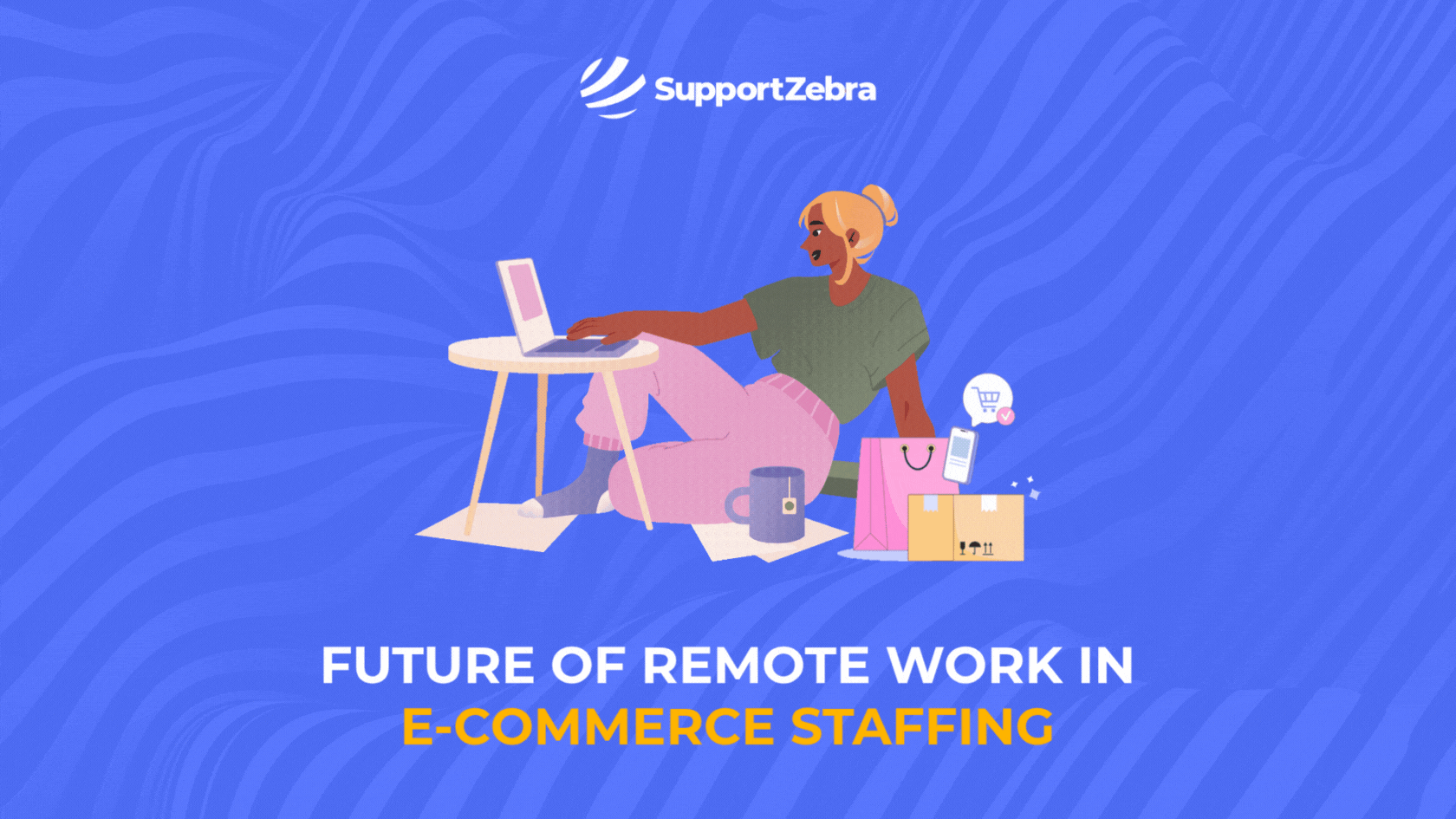Why Remote Work is the Future of E-commerce Staffing
What lies ahead for remote work in the e-commerce sector? As online shopping continues to expand, transitioning to remote work has become a trend in the industry. E-commerce businesses are increasingly aware of the necessity for flexible staffing strategies to address the needs of a fluid market.
In this article, we will examine the vital role of staffing within the e-commerce sector, highlighting key statistics that reveal substantial growth in remote work opportunities.
Increased Adoption of Remote Work
The rise of remote work has accelerated since the COVID-19 pandemic, with 12.7% of workers fully remote and 28.2% in hybrid models. By 2025, an estimated 22% of the U.S. workforce—approximately 32.6 million people—will be working remotely.
This shift signifies the future of work, driven by innovations like video conferencing and cloud services. Workers prioritize flexibility, with 98% seeking a better work-life balance, even if it means forgoing financial benefits. To attract and retain top talent, fostering a positive remote work environment that embraces flexibility and leverages technology is essential.
Increased Demand for Outsourced Remote Workers
The e-commerce industry is experiencing remarkable growth, with global sales projected to reach $6.38 trillion by 2024. This surge has created a need for varied staffing solutions. As companies grow, outsourcing staffing options are gaining traction. These options enable access to specialized skills without incurring overhead expenses. This approach is especially advantageous for positions that require particular expertise.
Additionally, the demand for remote workers is rising, with 98% of employees favoring flexible work setups. As e-commerce firms expand their reach, they actively seek remote talent for key roles, including product development and engineering. The shift towards remote work is projected to persist.
Benefits of Outsourcing Remote Work
E-commerce is booming, and outsourcing remote work is a smart business strategy to enhance efficiency and success. Here’s why:
-
Save Costs Smartly
Outsourcing allows you to reduce expenses on salaries, benefits, and office space. Hiring talent from regions with lower living costs could reduce labor costs by up to 30%. Many remote workers bring ready-to-go skills, saving you training costs and maximizing profits.
-
Tap into Global Talent
Why limit yourself? Outsourcing opens the door to a global talent pool, providing you with access to experts in areas such as digital marketing and customer support. This diversity enhances creativity and problem-solving, building a more agile and skilled team.
-
Stay Flexible and Scalable
Outsourcing makes it easier to adapt to seasonal demand or market shifts. You can scale your workforce up or down as needed and hire specialists for short-term projects, keeping pace with the fast-changing e-commerce landscape.
Challenges of Outsourcing Remote Work
Outsourcing remote work offers benefits, but also presents challenges that need to be addressed for effective collaboration. Key considerations include:
-
Communication Challenges
Time zone differences, language barriers, and cultural variations can hinder communication. Establish clear protocols, use collaborative tools, and encourage open dialogue.
-
Quality Consistency
Diverse skill sets can impact quality. Implement strong quality control measures, including regular evaluations, detailed instructions, feedback, and ongoing training.
-
Effective Remote Team Management
Leading remote teams requires a tailored approach. To enhance engagement, set clear goals, provide regular feedback, and organize team-building activities that foster a sense of camaraderie. Recognize achievements to promote a positive culture.
By addressing these challenges, you can maximize the benefits of outsourcing and build a productive remote team.
The Future of Remote Work in E-commerce Staffing
With the rise of remote work, e-commerce staffing is set for substantial expansion. Numerous trends and statistics underscore the increasing importance of remote work within the e-commerce industry.
-
Future of Remote Work Trends
Remote work is evolving, and hybrid models are becoming more popular. These models enable employees to balance their home and office work effectively. Enhanced communication tools will further improve virtual collaboration.
-
Key Statistics on Remote Work Growth
By 2025, an estimated 32.6 million Americans are expected to work remotely, accounting for 22% of the workforce. Currently, 12.7% of full-time workers are fully remote, and 28.2% use hybrid models. The demand for remote work continues to grow, with 98% of employees wanting remote flexibility.
-
Impact on E-commerce Companies
Remote work in e-commerce offers access to a global talent pool, fostering innovation. However, businesses must adapt management styles to ensure effective communication and quality control in remote teams.
The Bottom Line: Future Growth in Remote E-commerce Staffing

The e-commerce industry is evolving, and remote staffing solutions are more crucial than ever. SupportZebra is leading the way in shaping the future of remote work for digital retail. We offer process automation, customizable technology, and a skilled workforce to help eCommerce businesses seamlessly integrate remote teams. Our focus on customer service, technical support, and back-office tasks ensures that our remote staff genuinely represents our clients’ brands, thereby boosting productivity, reducing costs, and enhancing customer satisfaction.
As eCommerce evolves, our dedication to innovation, technology, and people-centered solutions will help our clients stay ahead in the remote work landscape. Contact SupportZebra today to transform your eCommerce staffing with our remote work solutions.

